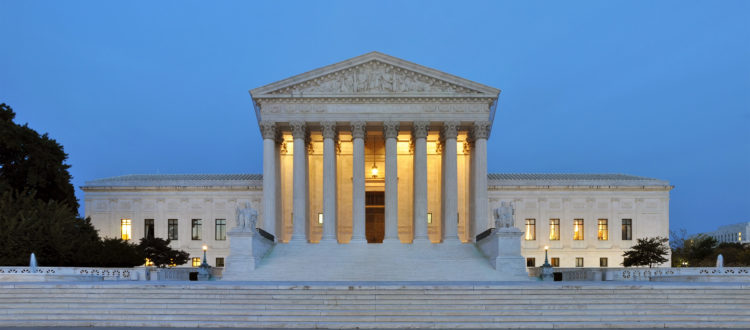Little Sisters of the Poor: The Latest Fight for Religious Liberty at the Supreme Court
On May 6, the Supreme Court heard oral arguments in cases related to contraception coverage under the Affordable Care Act, Little Sisters of the Poor v. Pennsylvania and Trump v. Pennsylvania.
When enacted in 2010, the Affordable Care Act mandated that employers offer health insurance that included contraception to employees. Citing their religious objections to providing birth control, the craft store chain Hobby Lobby, owned by a conservative Christian family, sued the Obama Administration, claiming the government mandate violated the company’s religious freedom, and demanding an exemption.
In 2014, the Supreme Court ruled in favor of the store in the 5-4 decision of Hobby Lobby v. Burwell, establishing the disconcerting and harmful precedent that employers can impose their religious beliefs on employees. This decision was grounded in the federal Religious Freedom Restoration Act (RFRA), passed by Congress in 1993, which the Court interpreted to grant Hobby Lobby exemption from the contraception mandate.
But RFRA was never meant to allow corporations to impose their beliefs on individuals. That was an interpretation that, according to Rob Boston, Editor of Church & State Magazine, was never intended by supporters. Instead, he explains here, RFRA was enacted to reverse a judicial standard for religious freedom cases that, “to many groups, seemed to be unduly harsh and restrictive – especially as it applied to the religious expression of minority faiths.”
Following Hobby Lobby v. Burwell, the Obama Administration granted religious employers an accommodation to the contraception coverage mandate, allowing them to complete a form stating their religious objection to birth control and triggering the federal government to step in and provide coverage for contraception.
Since then, the Trump Administration has expanded this exemption, triggering new lawsuits that challenge the Administration’s exemptions. Little Sisters of the Poor v. Pennsylvania is among these cases. If the Court’s conservative majority rules as expected, they will uphold these broad exemptions as required under RFRA, allowing conservative religious employers to force their religious values upon employees.
The Society for Humanistic Judaism, of which Jews for a Secular Democracy is an initiative, has signed onto an amicus brief led by Catholics for Choice, and joined by other progressive Jewish organizations including the National Council of Jewish Women, Keshet, and T’ruah. In our brief, we argue that the Trump Administration’s exemptions “prioritize an [employer’s] views over the religious or moral beliefs of the woman, increasing the cost of, and reducing her access to, contraception.” As a result, these exemptions endanger both personal religious liberty and women’s health, and we urge the Court to rule against them.
In recent weeks, conservative Jewish organizations have alleged that a ruling against the exemptions would endanger religious freedom for Jews. In fact, nothing could be further from the truth. In a May 11 op-ed in The Forward, our friends Rachel Laser (who received the 2019 JFASD Constitutional Defender Award) and Richard Katskee of Americans United for Separation of Church and State explained that:
“at its heart this case is really about whether the government can grant privileges to people who hold one religious belief in a way that harms many who don’t share that belief — which is particularly worrisome for religious minorities.”

